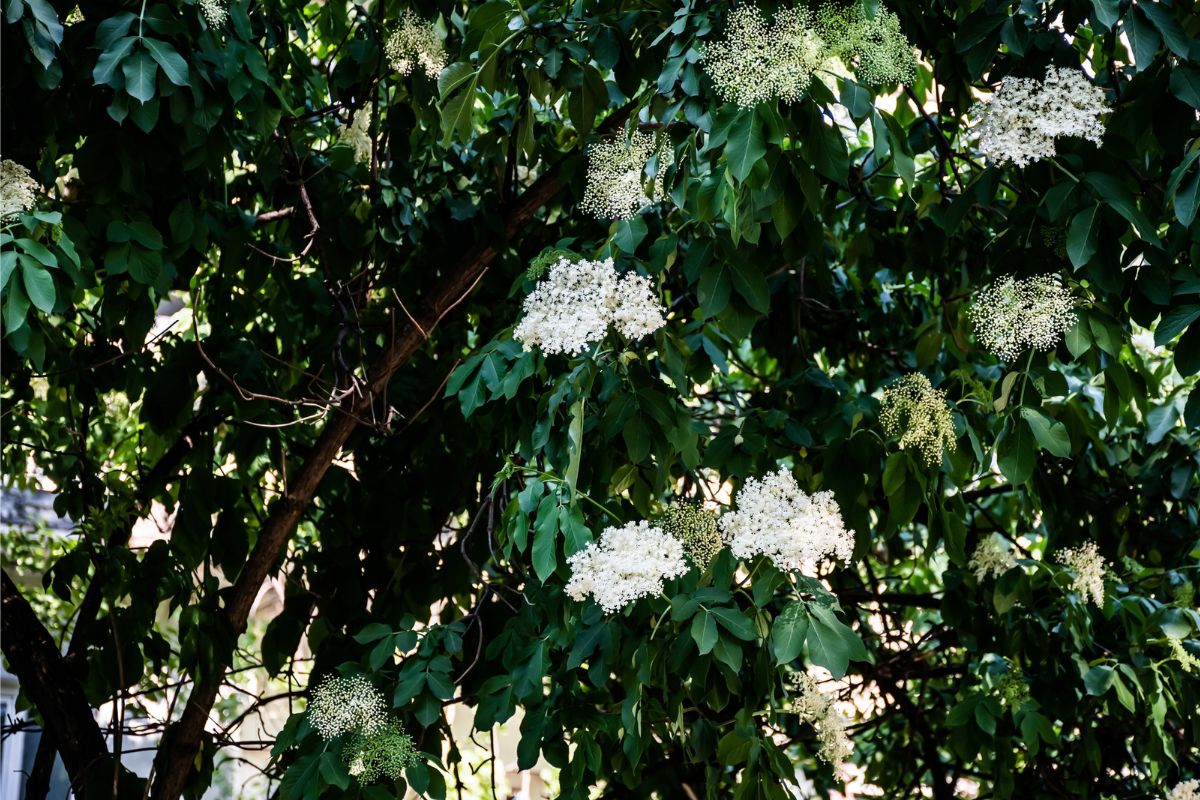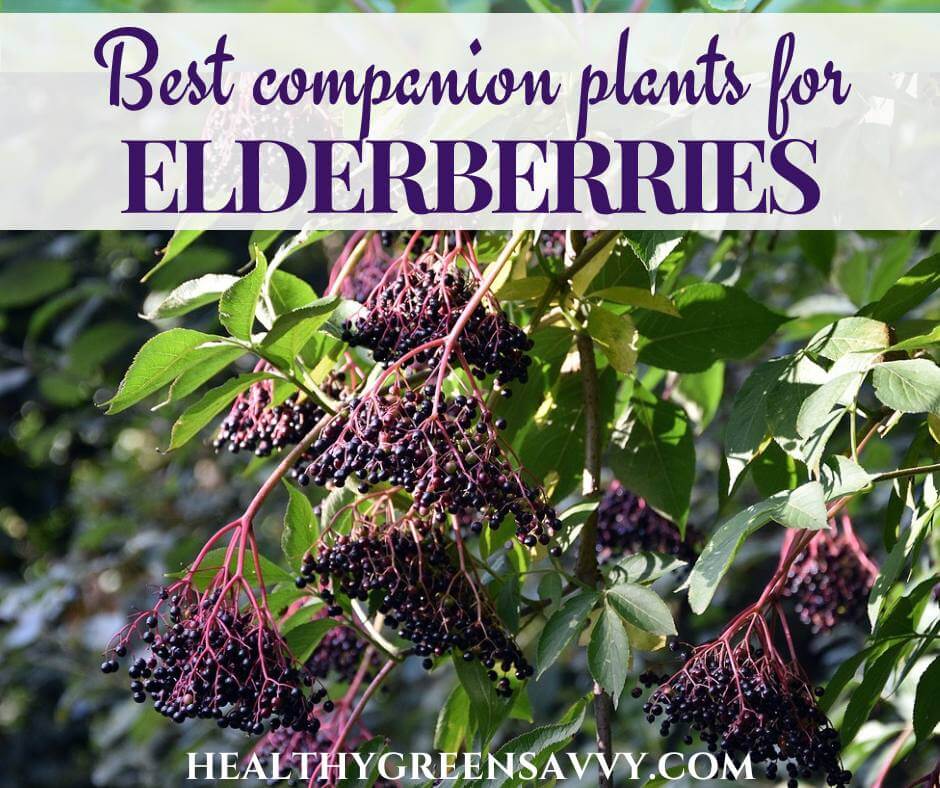Elderberry Companion Plants That Will Boost Your Yield And Repel Pests
Elderberry Companion Plants That Will Boost Your Yield and Repel Pests
Elderberries are a popular and versatile plant that can be used for a variety of purposes, including food, medicine, and ornamental landscaping. They are relatively easy to grow and care for, but they can benefit from the presence of companion plants.
Companion planting is a gardening technique that involves planting certain plants together in order to create beneficial relationships between them. These relationships can take many forms, such as:
- Attracting pollinators: Some plants, such as lavender and yarrow, attract pollinators like bees and butterflies. These pollinators are essential for the reproduction of many plants, including elderberries.
- Reducing pests: Other plants, such as marigolds and nasturtiums, can repel pests such as aphids, beetles, and rabbits. This can help to protect elderberries from damage.
- Improving soil conditions: Some plants, such as legumes, can fix nitrogen in the soil. This can help to improve the fertility of the soil and make it more suitable for growing elderberries.
By planting companion plants with elderberries, you can help to boost their yield and protect them from pests. Here are some of the best companion plants for elderberries:
- Gooseberries: Gooseberries are a good companion plant for elderberries because they attract pollinators and help to improve soil conditions. They are also relatively tall, which can help to provide shade for the elderberries.
- Winterberries: Winterberries are another good companion plant for elderberries. They are also a good source of food for birds, which can help to control pests.
- Raspberries: Raspberries are a good companion plant for elderberries because they have similar growing requirements. They also attract pollinators and help to improve soil conditions.
- Blueberries: Blueberries are a good companion plant for elderberries because they both prefer acidic soil. They also attract pollinators and help to improve soil conditions.
- Walnut trees: Walnut trees are a good companion plant for elderberries because they help to repel pests. They also provide shade for the elderberries, which can help to extend their flowering season.
In addition to these plants, there are many other companion plants that can be beneficial for elderberries. When choosing companion plants, it is important to consider the specific needs of your elderberries and the climate in your area.
By planting companion plants with elderberries, you can help to create a healthy and productive garden. These plants can help to boost your yield, repel pests, and improve soil conditions. So next time you are planning your garden, be sure to consider adding some companion plants for your elderberries.
Elderberries are a versatile and beneficial plant that can be grown in a variety of climates. They are also a good choice for companion planting, as they can help to attract pollinators, deter pests, and improve soil health.
Some of the best companion plants for elderberries include:
- Phlox: Phlox is a flowering plant that attracts pollinators and helps to suppress weeds. It also helps to improve soil drainage. Gardenia Inspiration
- Bee balm: Bee balm is another flowering plant that attracts pollinators. It also has medicinal properties and can be used to make tea.
- Winterberry: Winterberry is a deciduous shrub that produces bright red berries in the winter. It is a good choice for providing food for birds.
- Blueberries: Blueberries are a popular fruit crop that can be grown alongside elderberries. They share similar soil requirements and can help to improve the acidity of the soil.
- Walnut trees: Walnut trees are a good choice for companion planting with elderberries, as they help to repel pests.
If you are interested in learning more about elderberry companion plants, I recommend visiting Gardenia Inspiration. This website has a wealth of information on the topic, including plant lists, planting guides, and tips for companion planting.
FAQ of elderberry companion plants
- What are some good companion plants for elderberries?
Some good companion plants for elderberries include:
- Allium species (e.g., onions, garlic, chives): These plants help to repel pests and diseases from elderberries.
- Cabbage family (e.g., broccoli, cauliflower, Brussels sprouts): These plants benefit from the presence of elderberries, which attract beneficial insects that help to control pests.
- Flowering herbs (e.g., lavender, chamomile, mint): These plants help to attract pollinators to elderberries, which helps to improve fruit production.
- Nettle (Urtica dioica): This plant helps to improve the soil quality around elderberries, making it more nutrient-rich and well-drained.
- Sunflowers (Helianthus annuus): These tall plants help to provide shade for the lower leaves of elderberries, which can help to prevent diseases.
- How far apart should elderberry plants be planted?
Elderberry plants should be planted at least 6 feet apart. This gives them enough space to grow and spread their roots. If you are planting multiple rows of elderberries, space the rows at least 10 feet apart.
- What is the best time of year to plant elderberries?
Elderberry plants can be planted in spring or fall. Spring planting is generally preferred, as it gives the plants more time to establish themselves before the first frost.
- How much water do elderberry plants need?
Elderberry plants need regular watering, especially during their first year of growth. Once they are established, they are more drought-tolerant. Water elderberry plants deeply once a week, or more often during hot, dry weather.
- How do I care for elderberry plants?
In addition to watering, elderberry plants also need to be fertilized in the spring. Use a balanced fertilizer, such as a 10-10-10 fertilizer, and apply it according to the package directions. Elderberry plants also benefit from being pruned in the spring. Prune out any dead, diseased, or damaged branches. You can also thin out the plant by removing some of the older branches.
Image of elderberry companion plants
- Gooseberries: Gooseberries are a good companion plant for elderberries because they both attract pollinators and deter pests. They also have similar growing requirements, so they can be planted together without competing for resources.

- Winterberries: Winterberries are another good companion plant for elderberries. They both have red berries that attract birds and other wildlife. Winterberries can also help to protect elderberries from frost damage.

- Raspberries: Raspberries are a good companion plant for elderberries because they both like full sun and well-drained soil. They can also help to deter pests from elderberries.

- Blueberries: Blueberries are a good companion plant for elderberries because they both prefer acidic soil. They can also help to attract pollinators to elderberries.

- Walnut trees: Walnut trees are a good companion plant for elderberries because they can help to improve the soil quality around the elderberries. Walnut trees also release a chemical called juglone, which can help to deter pests from elderberries.

Post a Comment for " Elderberry Companion Plants That Will Boost Your Yield And Repel Pests"